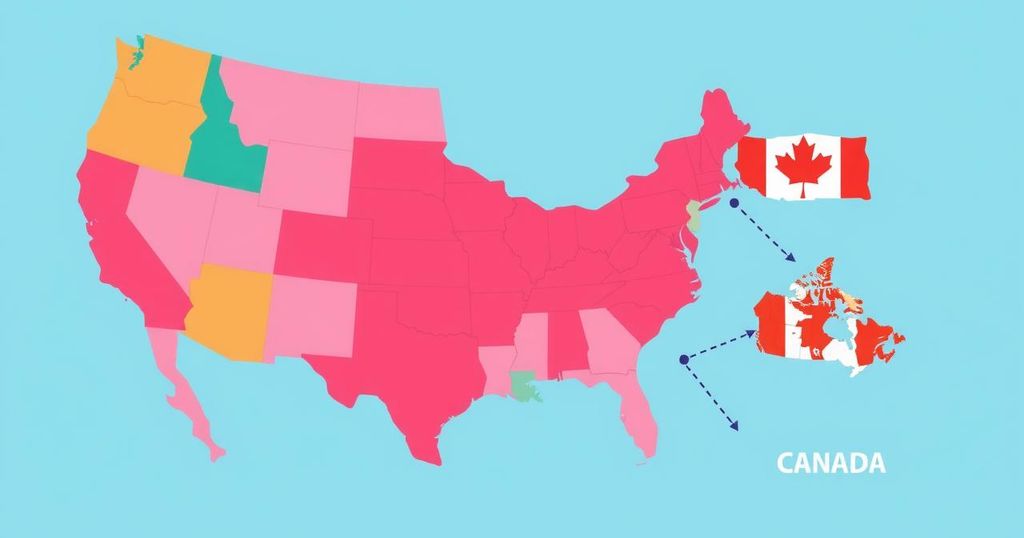US Assures India of No Similar Tariffs Amid Trade Negotiations
US trade officials assure India of no similar tariffs as China, Mexico, or Canada amid ongoing negotiations for a bilateral trade agreement. Upcoming meetings and discussions highlight a commitment to resolving tariff disparities while strengthening overall economic ties.
United States trade officials have reassured India that it will not face the same tariffs imposed on China, Mexico, and Canada as negotiations for a bilateral trade agreement proceed. The US has placed these discussions on a “fast track” amid a looming April 2 deadline for imposing reciprocal tariffs. In a recent meeting in Delhi, officials emphasized that India’s issues are primarily tariff-related and that they are working toward a mutually agreeable solution.
The US has characterized its relations with India as fundamentally different from those with its other trade partners, citing “serious issues” with China, Mexico, and Canada, such as currency manipulation and illegal migration. Discussions are unfolding in a cordial atmosphere and officials expect favorable outcomes for both nations that could be considered in advance of the upcoming tariff decisions.
In addition to these negotiations, Union Finance Minister Nirmala Sitharaman is scheduled to visit Washington later in April, which may further enhance discussions beyond just trade and tariffs. India and the US continue to demonstrate a commitment to strengthening their overall economic relationship, including both bilateral and multilateral partnerships.
This recent face-to-face meeting follows Union Commerce Minister Piyush Goyal’s earlier visit to the US, where preliminary discussions on the bilateral trade agreement commenced. In February, Prime Minister Narendra Modi and President Trump set an ambitious goal to elevate Indo-US bilateral trade from approximately $200 billion to $500 billion by 2030, furthering the imperative for a swift and successful trade agreement.
The Trump administration has been involved in aggressive tariff actions to counter perceived threats, which differ significantly from its relations with India. Tariff disparities exist, with India maintaining higher tariffs on various goods, provoking discussions on addressing these inequities with the US. Recent actions taken by India, such as lowering tariffs on motorcycles and removing the 6% tax on online advertisements, signal a willingness to engage, though may not suffice to circumvent the looming April deadline.
Global markets have reacted anxiously to the upcoming tariff decisions, with fluctuations noted across major stock indices. Investors are particularly cautious due to the implications for sectors with significant exposure to the US market, such as pharmaceuticals and information technology. Market analysts expect profit-taking in response to the tariff uncertainties and advise caution moving forward, as the situation remains fluid.
In summary, the United States has assured India that it will not impose similar tariffs as those applied to China, Mexico, and Canada, as negotiations for a bilateral trade agreement progress. The dynamics between the US and India indicate a focus on finding a satisfactory resolution to tariff issues, with expectations for enhanced economic collaboration. However, the looming April 2 deadline for imposed tariffs continues to induce volatility in global markets and may impact future discussions effectively.
Original Source: www.hindustantimes.com








Post Comment